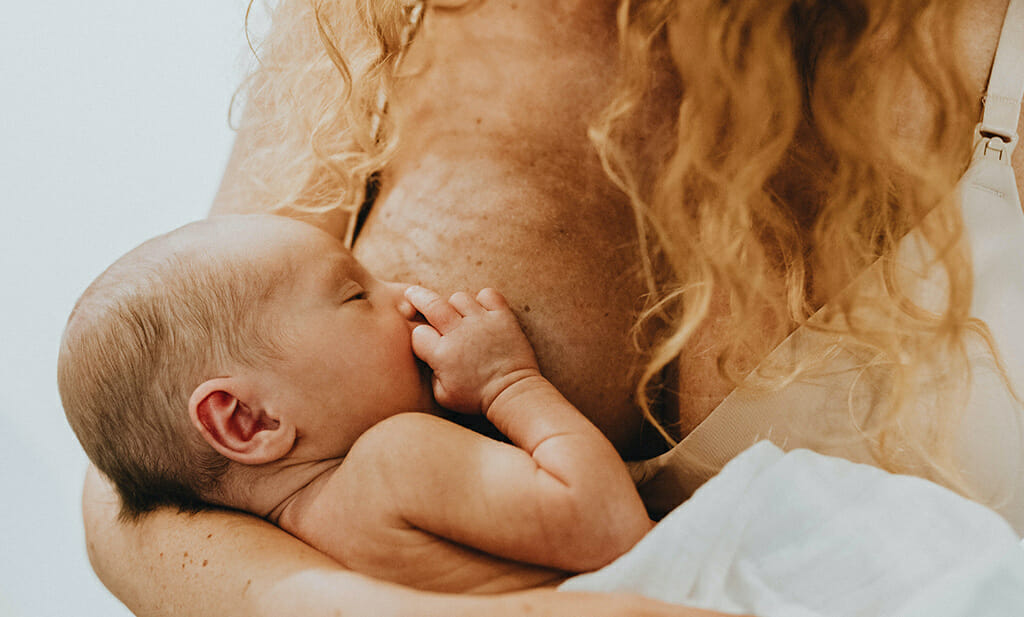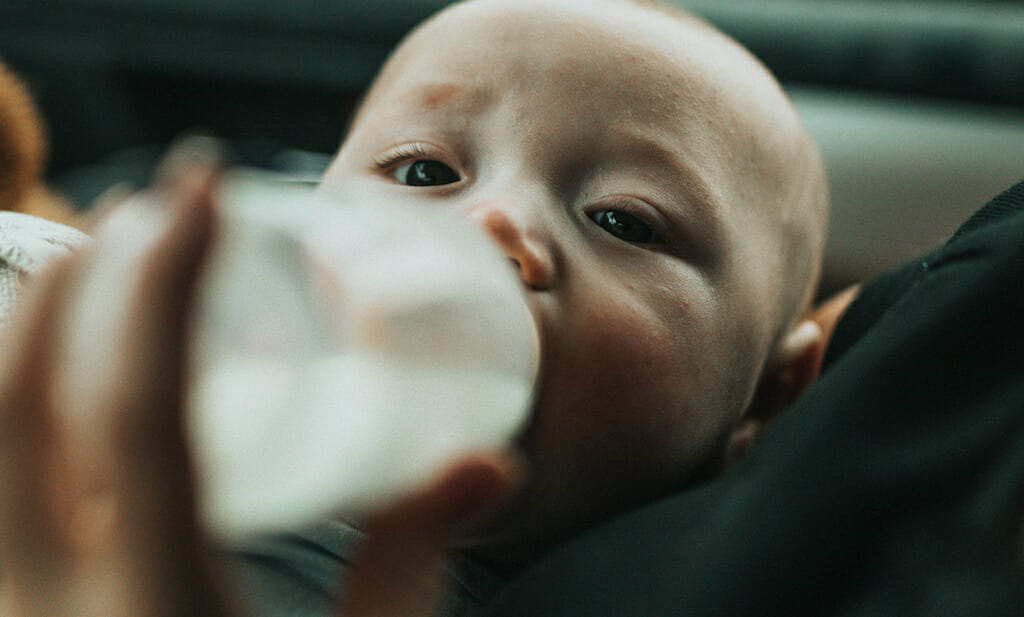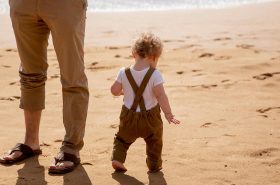
Wow what a summer! The heat makes us sweat more and our need for fluids increases.
Parents often ask themselves whether breast milk is enough for their baby in the warmer months. Or whether water should be offered from time to time in the heat.
Here is the short answer for all those who are in a hurry: No.
For all of those who want to know more details, please read on.
Why breast milk quenches baby’s thirst
You might think, if you only drink milk, you don’t get enough water. However, this does not apply to breast milk. Mother Nature has devised an ingenious system to ensure that little human babies survive in the best possible way, even in the heat. Not only in the UK, when the temperatures are above 30 degrees, but also in the tropics and even in the desert. Breast milk consists of 88 percent water, so if you breast/chest feed your baby, they will get plenty of fluid to quench their thirst. If you are wondering about where your baby gets its vital nutrients, let us reassure you, the remaining 12 percent contains everything your baby needs to grow healthily.
How your baby regulates its own fluid intake
Frequent short feeds from both breasts will give your baby a rather watery milk with a low fat content. This is perfect for quenching your baby’s thirst. This is why your baby may be fussy more often when it’s hot, regardless of how long it’s been since their last feed. In this case, simply offer them both breasts for a few minutes in between and see if they become more satisfied.
In contrast, the fat content of one breast increases over time when you feed extensively. The longer your baby sucks, the more fat-rich milk they will get, which will make them feel full and satisfied and in turn gains enough weight. It is important to trust your baby and not to breast/chest feed according to the clock, then they will regulate their fluid intake perfectly on their own.
Additional water or unsweetened tea is not necessary. On the contrary, it can even cause problems for you and your baby. Tea and water only fill your baby’s stomach without providing them with vital nutrients and salts. If your baby quenches its thirst with water, it may drink less often at your breast/chest – and this can have a negative effect on milk production.

Why extra water can even be dangerous
Too much water in the first year of life can lead to life-threatening water intoxication. This is why it is explicitly not recommended to give extra water to babies under six months of age. Too much water upsets the electrolyte balance and your child’s sodium level drops. Since the baby’s kidneys are not yet fully developed, the imbalance cannot be regulated by excessive excretion of water. This can cause the cells to absorb the water, resulting in life-threatening brain oedema with symptoms such as headaches, nausea, tremors, loss of consciousness and epileptic seizures.
So-called water intoxications are the second most common cause of seizures in babies after fever and can even cost your child his or her life. Therefore, please do not add extra water to your baby’s pre-milk (bottle-feeding) when it is hot. What is well-intentioned can end badly.
When your baby needs extra water
While your baby does not need additional water as you start to introduce food, you can start to introduce sips of water but please remember that breastmilk or infant formula should be their main drinks within their first year. From the age of one, water should be offered at every meal. The Research Institute of Child Nutrition recommends a total of 600 ml of water per day for toddlers from the age of one, divided into 6 small glasses, as part of the optimised mixed diet.
Please note: In case of fever or persistent diarrhoea and vomiting, an earlier and also higher fluid intake may be necessary. However, this only applies to babies who are not breast/chest fed. Breast/chest fed babies cover their needs through their mother’s milk. However, please discuss with your paediatrician or midwife to what extent you can increase your fluid intake without any problems.
Oh yes, and as mothers, don’t forget to drink while breast/chest feeding. The guideline here is one glass with each breast/chest feed and whenever you are thirsty.
Source:
Do breast/chest feeding babies need extra water in summer?, Regine Gresens, IBCLC, 2014.
At what point do babies need extra fluids?, www.gesund-ins-leben.de, 2018



